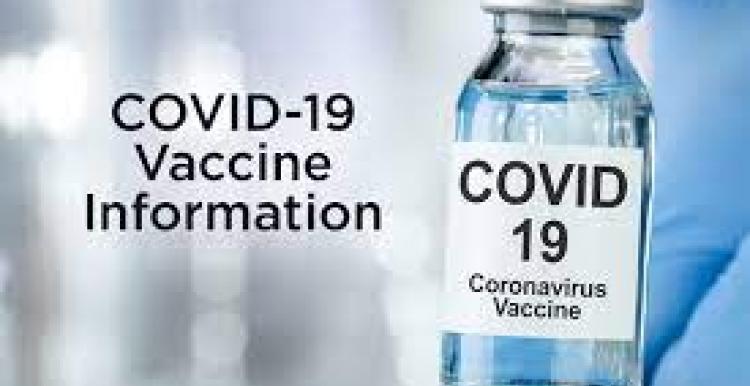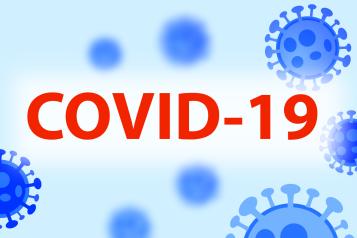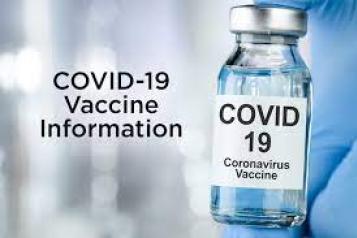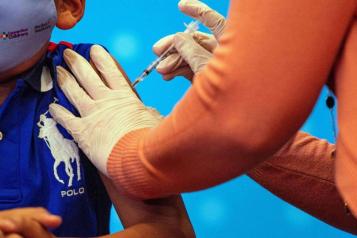Latest questions and answers around COVID Vaccinations
The Covid-19 vaccination rollout was the fastest in England’s history – it has saved countless lives and allowed us to live with this virus without restrictions on our freedoms.

Vaccines are the best way to protect people from Coronavirus. They have saved countless lives, prevented the NHS from becoming overwhelmed and helped to keep our economy open.
It’s critical we all get jabbed with first, second and booster doses, not just to protect ourselves, but also our loved ones and our communities
How do we know COVID vaccines work?
- COVID-19 vaccines are safe, effective and have saved countless lives. They give us the best possible protection against COVID-19.
- UKHSA publish weekly reports looking at vaccine effectiveness and the impact of vaccination on the population.
- Latest data from UKHSA show that six months after receiving a second dose, two doses provide between 30% and 40% protection from needing to be hospitalised for COVID-19. This increases to around 90% protection shortly after having the booster, at least 85% at five to nine weeks and remains above 70% around three months after the booster.
- Latest data from UKHSA suggests that the booster vaccine programme has prevented over 100,000 hospitalisations related to COVID-19
- The COVID-19 vaccines approved for use in the UK have met strict standards of safety, quality and effectiveness.
- Large rigorous clinical trials have been undertaken for each of the COVID-19 vaccines approved in the UK which found that they are safe and highly efficacious at preventing symptomatic disease, hospitalisation and death.
Do COVID vaccines work effectively for people from different backgrounds?
- Each of the vaccines are tested on tens of thousands of people across the world. They are tested on both men and women, on people from different ethnic backgrounds, and of all ages between 18*-84 (some companies have data down to 16 years of age)*
- Latest data from UKHSA show that six months after receiving a second dose, two doses provide between 30% and 40% protection from needing to be hospitalised for COVID-19. This increases to around 90% protection shortly after having the booster, at least 85% at five to nine weeks and remains above 70% around three months after the booster.
- Pfizer/BioNTech clinical trials took place in the US, Europe, Turkey, South Africa and South America. Approximately 42% of global participants and 30% of US participants had racially and ethnically diverse backgrounds.
- Oxford-AstraZeneca trials took place in the UK, Brazil and South Africa. The non-white demographic in the UK trial was 7.1%. In the Brazil trial it was 31.4% and in South Africa it was 87%.
Do Pfizer/BioNTech and Moderna vaccines work better than the OxfordAstraZeneca vaccine?
- Vaccination reduces the risk of COVID-19 infection. Two doses of the Pfizer/BioNTech, Moderna or Oxford-AstraZeneca vaccine were more effective than one dose at preventing symptomatic infection. The booster vaccine provided over 90% protection against symptomatic infection in adults aged 50 years and over.
What is the efficacy of different vaccines against different strains of coronavirus?
Alpha
UKHSA data showed in June 2021:
- individuals who receive a single dose of the Oxford-AstraZeneca vaccine have approximately 80% lower risk of death against the Alpha coronavirus variant and a second dose of the vaccine can provide 85 to 90% protection against symptomatic disease.
- protection against death from the Pfizer/BioNTech vaccine rises from approximately 80% after one dose to 97% after 2 doses against the Alpha variant.
Delta
UKHSA data showed in June 2021:
- the Pfizer/BioNTech vaccine is 96% effective against hospitalisation after 2 doses;
- the Oxford-AstraZeneca vaccine is 92% effective against hospitalisation after 2 doses
Omicron
- after 2 doses of the AstraZeneca vaccine, vaccine effectiveness against the Omicron variant starts at 45 to 50% then drops to almost no effect from 25 weeks after the second dose.
- With 2 doses of Pfizer/BioNTech or Moderna effectiveness dropped from around 65 to 70% down to around 15% by 25 weeks after the second dose.
- Two to 4 weeks after a booster dose of either the Pfizer/BioNTech or Moderna vaccine following an AstraZeneca or Pfizer/BioNTech primary course, effectiveness ranges from around 60 to 75%, dropping to almost no effect from 20+ weeks after the booster.
- Vaccine effectiveness estimates for the booster dose are very similar, irrespective of the primary course received. Vaccine effectiveness is generally slightly higher in younger compared to older age groups.
- Two doses of either AstraZeneca or Pfizer vaccines was associated with a vaccine effectiveness of approximately 25 to 35% against hospitalisation following infection with the Omicron variant, after 25+ weeks. After a Pfizer booster (after either primary vaccination course), vaccine effectiveness against hospitalisation started at around 90% dropping to around 75% after 10 to 14 weeks.
- After a Moderna booster (after either primary vaccination course) vaccine effectiveness against hospitalisation was 90 to 95% up to 9 weeks after vaccination.
Can I choose whether I receive a Pfizer/BioNTech or Moderna booster vaccine?
- No, but both vaccines are highly effective and provide a strong booster response.
- When you attend your booster vaccination appointment, you will be offered a safe, effective vaccine that has been taken up by millions of people and has saved more than 130,000 lives in England alone.
- If you have any concerns, discuss with your GP or healthcare professional.
Can I choose an Oxford-AstraZeneca booster vaccine?
- Those eligible will be offered a booster dose of either the Pfizer/BioNTech vaccine or Moderna vaccine.
- If for any reason you are not able to have one of those vaccines, you will be offered a dose of Oxford-AstraZeneca (if you have received this vaccine before).


